Invasive Species Week is an annual week of awareness raising and events to help prevent the spread, and reduce the harmful impacts, of invasive non-native plants and animals.
Invasive Species Week 2024
Invasive Species Week 2024 will take place from the 20th to 26th May 2024.
- Take part! Find information and resources to help you
- Events calendar (coming soon)
- Highlights from Invasive Species Week 2023
Please contact us to be added to our mailing list for updates.
What can I do?
There are five simple things that you can do to help prevent the spread of invasive non-native species. If you want to know more, view our guidance for different groups.
 |
Keep any boats, clothing, footwear and equipment used in water free of invasive non-native species – remember to Check Clean Dry after use. |
 |
Be Plant Wise and don't let your garden, pond, or aquarium plants enter the wild. |
 |
Take care of your pets, never release them or allow them to escape into the wild. It’s cruel and could harm other wildlife. |
 |
Look out for Asian hornet and other alert species and record your sightings. Read more on Asian hornet and how to report sightings, find free ID sheets for invasive non-native species. |
 |
If you enjoy being outside why not volunteer with a Local Action Group working on invasive species management. |
